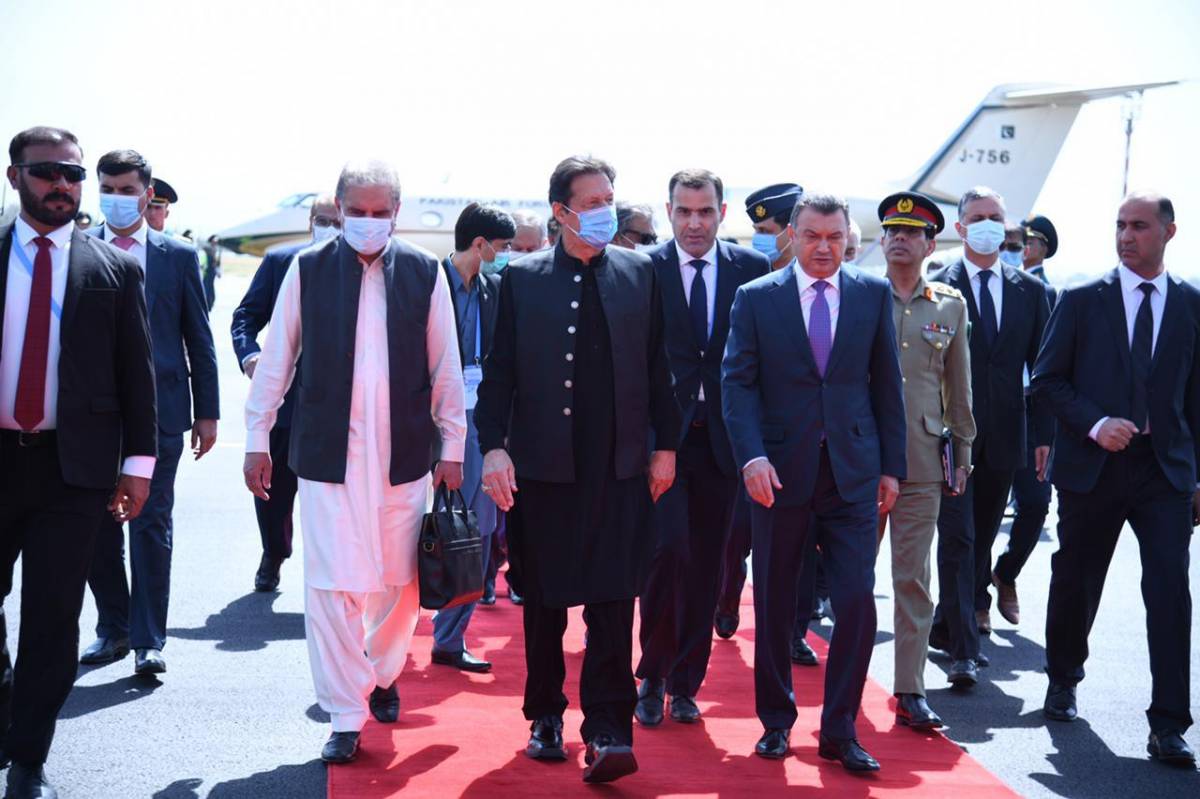The 21st meeting of the SCO Council of Heads of State will be held in Tajikistan’s Dushanbe on September 17…reports Asian Lite News.
Pakistan Prime Minister Imran Khan on Thursday arrived in Tajikistan to attend the 20th Shanghai Cooperation Organisation’s (SCO’s) Heads of State Summit in Dushanbe.
“The prime minister was received by Tajik Prime Minister Kokhir Rasulzoda and was accorded a red carpet welcome at Dushanbe International Airport,” Prime Minister’s Office tweeted.
According to Dawn, Pakistan Foreign Minister Shah Mahmood Qureshi is accompanying Khan on the visit.
The 21st meeting of the SCO Council of Heads of State will be held in Tajikistan’s Dushanbe on September 17.
The meeting will be chaired by Tajikistan’s President Emomali Rahmon.
The SCO is celebrating its 20th anniversary this year. It will be the first SCO Summit being held in a hybrid format and the fourth Summit that India will participate as a full-fledged member of SCO.
SCO is an intergovernmental organization founded in Shanghai. The SCO currently comprises eight Member States — China, India, Kazakhstan, Kyrgyzstan, Russia, Pakistan, Tajikistan and Uzbekistan, four Observer States interested in acceding to full membership — Afghanistan, Belarus, Iran, and Mongolia — and six “Dialogue Partners” — Armenia, Azerbaijan, Cambodia, Nepal, Sri Lanka, and Turkey.
At the Summit, the leaders are expected to review the organisation’s activities over the past two decades and discuss the state and prospects of future cooperation.
The summit will be attended by the leaders of the SCO member states, observer states, secretary-general of the SCO, executive director of the SCO Regional Anti-Terrorist Structure (RATS), and other invited guests.
From India, Prime Minister Narendra Modi will virtually address the plenary session of the summit, the Ministry of External Affairs said in a statement on Wednesday.
Meanwhile, External Affairs Minister S Jaishankar will represent India in Dushanbe, the statement added. (ANI)
ALSO READ-Pakistan ‘surprised’ by Blinken’s remarks on reassessing ties

